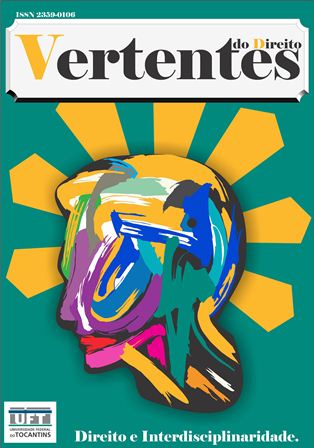OS DIREITOS DOS PACIENTES COM CÂNCER:A INEFICIÊNCIA DO ESTADO E O PAPEL HUMANITÁRIO DO ESTUDANTE DE DIREITO EM SUA EXPLICITAÇÃO
DOI:
https://doi.org/10.20873/uft.2359-0106.2019.v6n1.p72-87Keywords:
Direito à saúde, Portadores de câncer, Direito à informação, Extensão UniversitáriaAbstract
The Federal Constitution of 1988, guarantees to all citizens in its art. 196, the right to health, and it is incumbent upon the State to create policies for universal and equal access to all services that are necessary for its maintenance. However, there are certain groups that are unassisted, even if there are specific laws that address the issue, such as cancer patients. From the diagnosis, Law No. 12,732, dated November 22, 2012, guarantees the cancer patient that treatment begins in a maximum of 60 days, in addition to other rights that are conferred. Nevertheless, even with such guarantees, the State neglects itself by withdrawing from these persons the most basic rights, in the majority of cases, by the patients' own ignorance that they have their own rights.
In this bias, the importance of law students, who through university extension projects, can make explicit to these people, what they are and how to seek their rights, enjoyed the right to information. This article is based on the experience of an extension project that dealt with the subject, and which ran up against the lack of knowledge and disbelief of the patients, because they knew that the State, which should guarantee them rights, usurped them unreasonably.
Downloads
Published
How to Cite
Issue
Section
License
Os trabalhos aprovados para publicação tornar-se-ão propriedade da Revista sem qualquer ônus para a mesma. A Equipe Editorial se reserva o direito de promover as adequações necessárias para publicação.
O conteúdo dos trabalhos publicados na Revista Jurídica eletrônica Vertentes do Direito - inclusive quanto à sua veracidade, exatidão e atualização das informações e métodos de pesquisa - é de responsabilidade exclusiva dos autores. As opiniões e conclusões expressas não representam posições da Revista nem da Universidade Federal do Tocantins.













